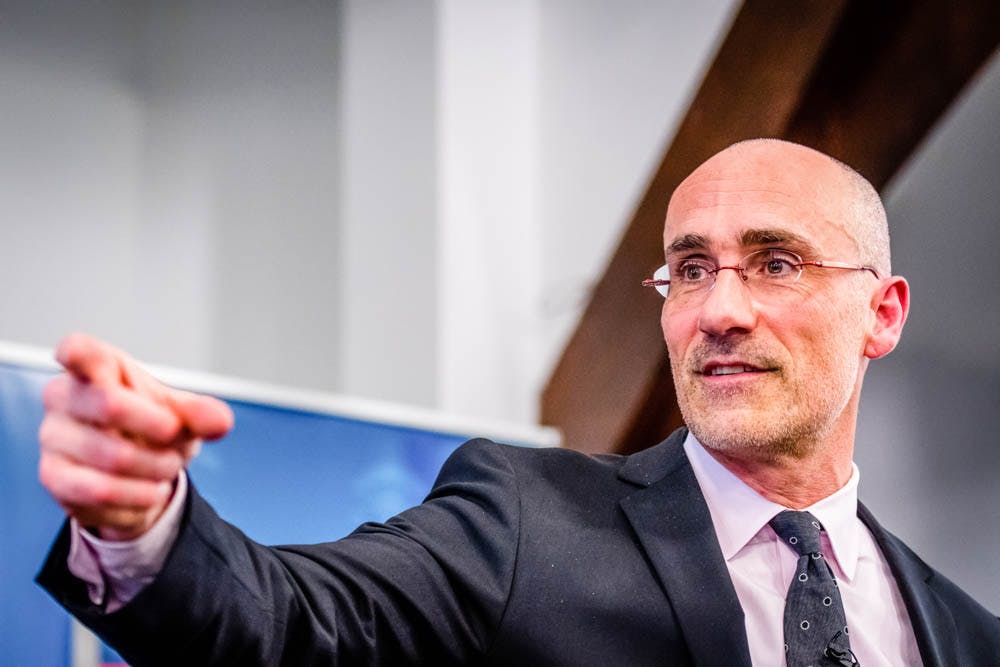President of prominent right-wing thinktank the American Enterprise Institute and New York Times columnist Arthur Brooks spoke about uniting Americans in polarized times before a group of students, faculty and members of the Providence community Tuesday evening in Pembroke Hall. His talk, entitled “Bringing Americans Together,” was part of the Reaffirming University Values lecture series designed to foster dialogue and highlight diverse viewpoints on campus.
Brooks, a conservative economist, is the author of several influential books, including “The Conservative Heart: How to Build a Fairer, Happier, and More Prosperous America.” In a tight-fitting suit, he strode energetically as he spoke.
His lecture was specifically designed to challenge political and cultural polarization, he said. Citing his extensive work with the Dalai Lama, Brooks repeatedly emphasized the importance of listening to new ideas with openness. He offered a path toward prosperity in the United States that involves meeting anger in politics with warmheartedness.
“No one in the history of humanity has ever been insulted into agreement,” he said. “If politics is the politics of persuasion, we are failing.”
Brooks also outlined a conservative political program that he said emphasized dignity. The poor and marginalized, he said, must feel not just helped, but also needed.
Brooks opened his talk by focusing on white men from the ages of 45 to 54 — the only group in the United States with decreasing life expectancies, as a result of suicide, alcoholism and opioid addiction, he said.
“These, my friends, are deaths of despair,” he said.
How to remedy this despair? His solution is work — of all kinds. “Work works,” he said. “All work has dignity, and all work has value.” In order for the United States to become “truly great again,” it needs to ensure employment for more of its constituency, he said.
When the lecture opened to the crowd for questions, several students inquired about his ideas: Did all employment dignify workers? What about menial, “Kafka-esque” tasks?
In response, Brooks cited a study that found 89 percent of Americans to be satisfied with their jobs. The man who makes your sandwich is as likely to enjoy his job as your professor, he said, adding that “your Kafka-esque experience depends a lot on your heart.”
President Christina Paxson P’19 billed Brooks as representative of “reform conservatism” and highlighted the importance of hearing opinions considered controversial on campus in her introduction.
Like Paxson, Brooks highlighted the importance of listening to others and dismantling what he calls a culture of “contempt” that plagues U.S. politics. Contempt is the complete belief in the worthlessness of another person and is most often signified by the eye roll, he said.
Following some of the Dalai Lama’s personal advice, Brooks challenged the audience to meet contempt with warmheartedness.
“Warmheartedness is for strong people. Contempt is for weak people. Which are you going to be?” he asked.
In spite of this call to action, some students remained skeptical.
“I would be hard-pressed to pick a topic on which he is less qualified to speak than ‘bringing America together,’” said Isaac Bierer ’18.
Others approved of his talk. Maksymilian Dabkowski ’19 felt unconvinced that all labor could be dignified, but he enjoyed the lecture.
“I think it was very inspiring and enlightening,” he said.





